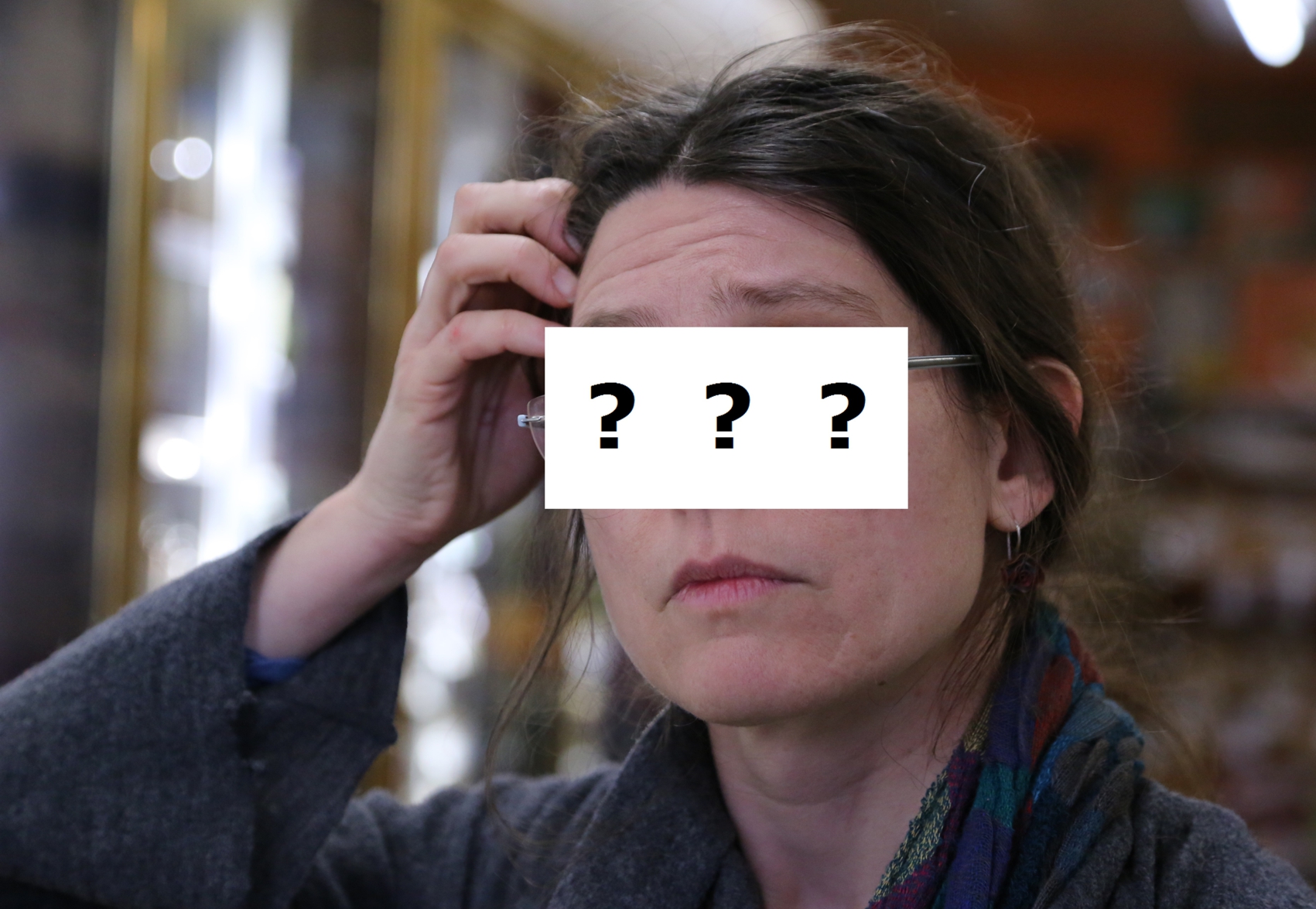
|
July's issue for reflection
WHAT DOES IT MEAN
TO BE TRUE TO MYSELF?
|
|
“This man is so authentic!”
“That girl is fake, a phony!”
“I will not listen to them – I must be true to myself!”
What does it mean to be authentic, or true to myself? Who should I be true to? Who do I betray when I am inauthentic, or fake? Who is my true “I”?
When I am true to myself, I am not true to everything I have – to my nose, or to my headache, or to my boredom. I am true to… to what? Who am I truly?
Perhaps my true self is natural, spntaneous energies within me, as the Swiss-French thinker Jean-Jacques Rousseau said?
Or perhaps my true self is the rational part of myself, as the Roman philosopher Marcus Aurelius believed?
Or maybe there is no fixed self in me – I create myself again and again every moment, as the French existentialist Jean-Paul Sartre explained?
Or maybe something else?
|
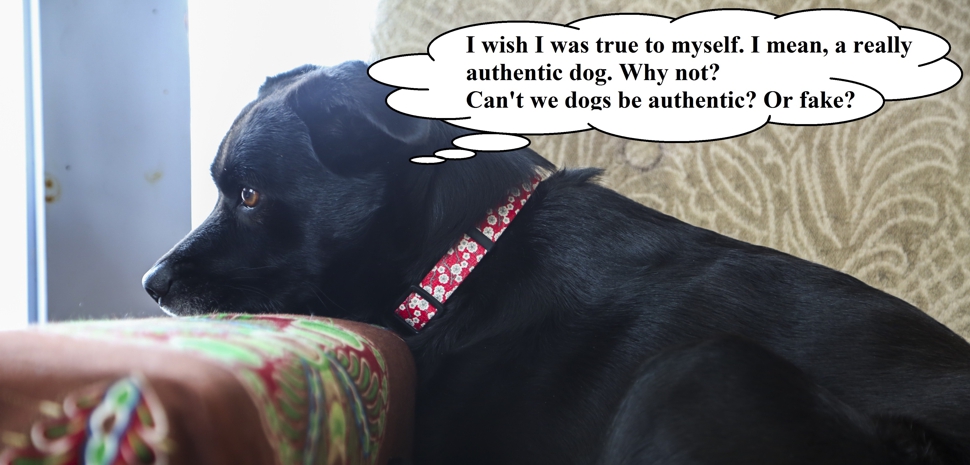
|
Thinking with others: THE PHILOSOPHICAL COMPANIONSHIP
|
 |
|
Now that you are familiar with the issue of authenticity, you can reflect about it in the company of your friends, whether online or face-to-face. There are different ways of running such a group. It can be a reading group which discusses a short text, or a discussion group about a specific case-study, perhaps from the literature or the cinema. But an especially powerful way of doing it is in the "Contemplative Companionship."
In a Contemplative Companionship, the participants don't argue with each other. They don't speak from their opinions, but from their heart, from their deep self - in togetherness with the others. Like a group of musicians creating music together, they create a philosophical symphony together.
Here is a video-recording of the contemplative companionship of several Agora team-members.
{youtube}f_b2iHrIaGI{/youtube}
If you decide to start your own contemplative companionship, we invite you send us the results!
|
|
July Week 2 quotation
Marcus Aurelius
|
|
Marcus Aurelius, Meditations
The true self as the rational self
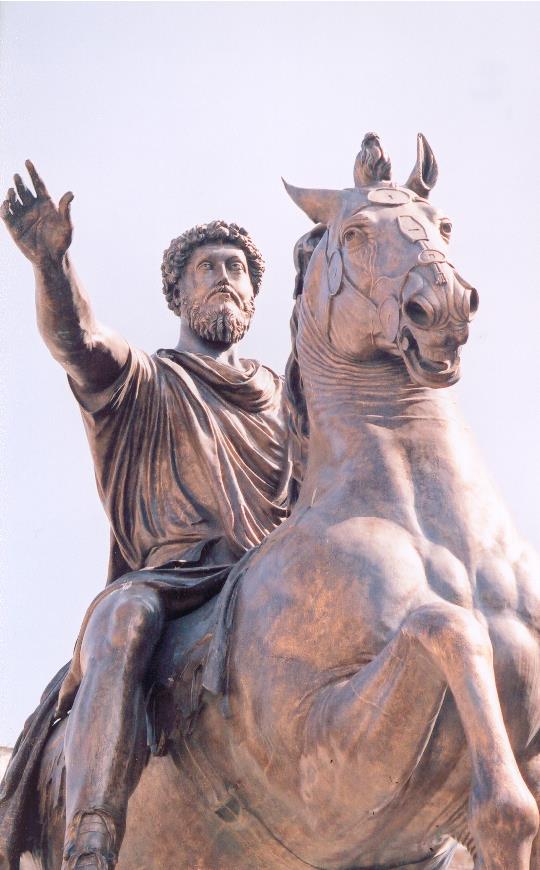 Marcus Aurelius (121-180 AD) was a Philosopher and a Roman emperor from the Stoic school of philosophy. As a Stoic, he emphasized the importance of maintaining inner peace, accepting fate calmly, freedom from the power of emotions, and being in harmony with the cosmos. To do this, the Stoics believed, one has to be true to one’s rational faculty (as opposed to emotional forces) – also called one’s “guiding principle, “inner guide,” or daemon, or as we would say today, true self. Marcus Aurelius (121-180 AD) was a Philosopher and a Roman emperor from the Stoic school of philosophy. As a Stoic, he emphasized the importance of maintaining inner peace, accepting fate calmly, freedom from the power of emotions, and being in harmony with the cosmos. To do this, the Stoics believed, one has to be true to one’s rational faculty (as opposed to emotional forces) – also called one’s “guiding principle, “inner guide,” or daemon, or as we would say today, true self.
The following passages are from Marcus Aurelius' book Meditations, which was in fact a personal notebook where he wrote his personal reflections. The book tells us that the true self ("the guiding principle" or "the daemon") is the rational faculty within the person. It is the element within us which thinks rationally and calmly, undisturbed by emotions, desires, and the influence of others. When we follow this inner guide, we are true to ourselves.
What, then, can guide a man? One and only one thing – philosophy. But this consists in keeping the daemon within a man free from violence and unharmed, superior to pains and pleasures, doing nothing without purpose, without falsity or hypocrisy, without relying on anybody else to do or not to do anything. And also, accepting all that happens, and all that is assigned to you, as coming from wherever you yourself came. And, finally, waiting for death with a cheerful mind, accepting it as no more than a dissolution of the elements of which every living being is made. (from Book 2)
Retire into yourself. The rational principle which rules is by nature content with itself when it does what is just, and in doing so it achieves tranquility. (from Book 7)
Different things delight different people. But it is my delight to keep the guiding faculty sound without turning away either from any man or from any things that happen to men, but looking at and receiving everything with welcome eyes, and using everything according to its value. (from Book 8)
You have suffered infinite troubles by being dissatisfied with your guiding faculty, when it does the things which it is made by nature to do. Enough of this. (from Book 9)
|
Here is one way to reflect on this quotation
Read the text to make sure you understand it. Then ask yourself: "What does this text tell me personally? What does it tell me about myself?" Now start reading again the text, this time slowly, and listen to how the text responds to your quesion. Allow yourself to change the original words in order to make them more personally relevant to you.
|
| |
|
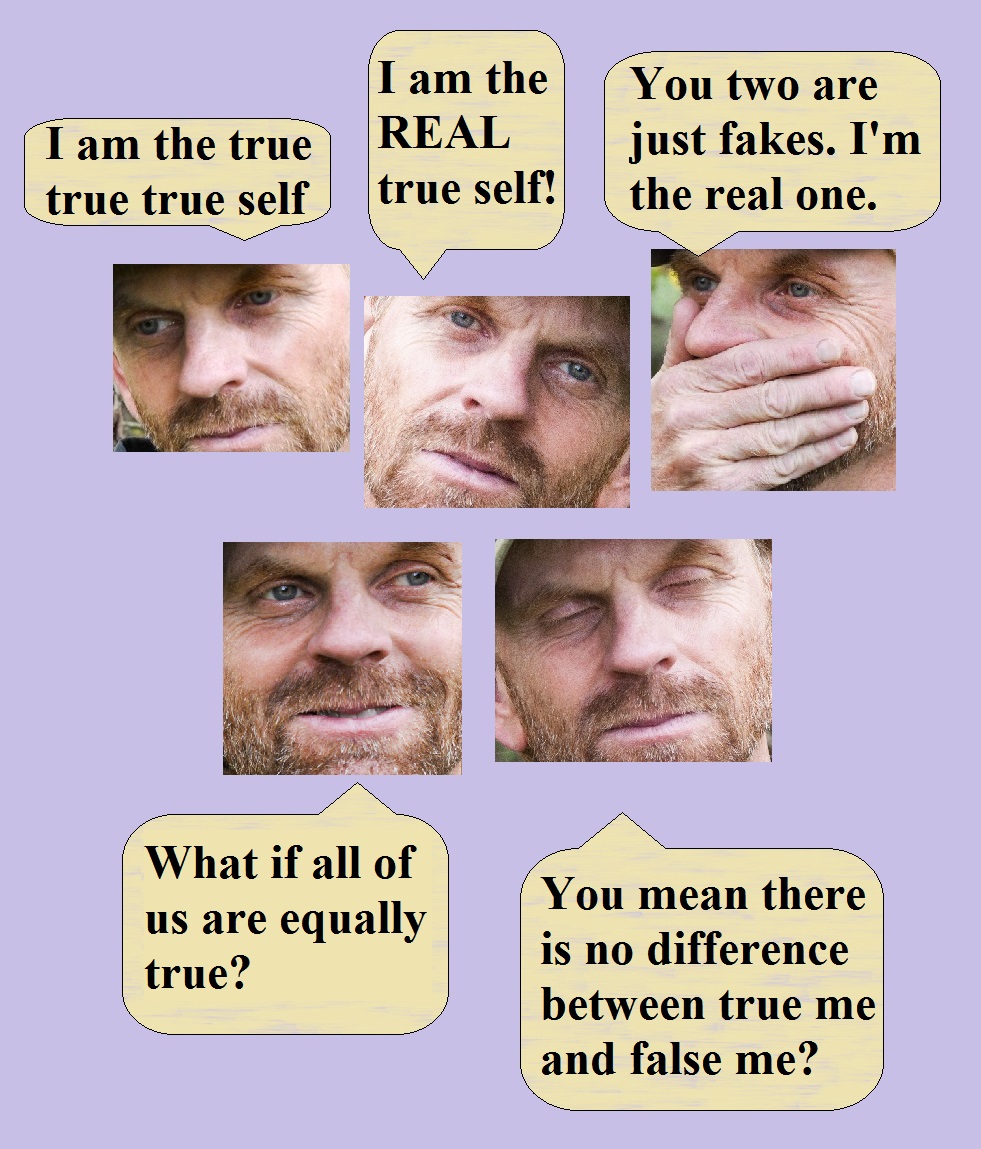 |
.. ........ |
|
July Week 4 quotation
Jean-Paul Sartre
|
|
Jean-Paul Sartre, Existentialism is Humanism
My true self is my freedom to define myself
Jean-Paul Sartre (1905-1980) was an influential French philosopher and novelist, a central thinker of existentialist philosophy.
A fundamental idea in Sartre's philosophy is that human consciousness is radically free – there is no fixed human nature that determines how we behave. Our decisions are not determined by emotions, personality, or any other force. One may say that there is no “true self” within us. To be authentic can only mean being faithful to our freedom to determine what we do and who we are. The following quotations are adapted from a short but influential book, written in 1946:
…man first of all exists, encounters himself, rises in the world – and defines himself afterwards.
If man as the existentialist sees him is not definable, it is because at first he is nothing. He will not be anything until later, and then he will be what he makes of himself. Thus, there is no human nature… Man simply is… he is what he wills, and as he conceives himself after already existing…
Man is nothing else but whatever he makes of himself. That is the first principle ofexistentialism… man is, first of all, something which propels itself towards a future, and is aware that it is doing so. Man is, indeed, a project which possesses a subjective life, instead of being a kind of moss, or a fungus, or a cauliflower. Before that projection of the self, nothing exists; not even in the heaven of intelligence. Man will only attain existence when he is what he intends to be… man is responsible for what he is. Thus, the first effect of existentialism is that it puts every man in possession of himself as he is, and places the entire responsibility for his existence squarely upon his own shoulders.
…one will never be able to explain one’s action by reference to a given and specific humannature. In other words, there is no determinism – man is free, man is freedom. That is what I mean when I say that man is condemned to be free. Condemned, because he did not create himself, yet is nevertheless at liberty, and from the moment that he is thrown into this world he is responsible for everything he does. The existentialist does not believe in the power of passion. He will never regard a grand passion as a destructive flow which sweeps man to do certain actions, as by fate, and which, therefore, is an excuse for them. He thinks that man is responsible for his passion… He thinks that every man, without any support or help whatever, is condemned at every instant to invent man.
|
|
July Week 3 quotation
Jean-Jacques Rousseau
|
|
Jean-Jacques Rousseau, Emile
The true self as the natural self
Jean-Jacques Rousseau (1712-1778) was born in Geneva and developed many of his philosophical views in Paris. His philosophy had a profound influence on modern political and social thought, and on education. His conception of the self and authenticity made an impact on our contemporary way of thinking. In his writings he argues that social institutions and social norms distort our natural self. They cause people to wear a false social mask which is alienated from their true nature. The natural element in the person is the authentic source in us, which we should value and develop.
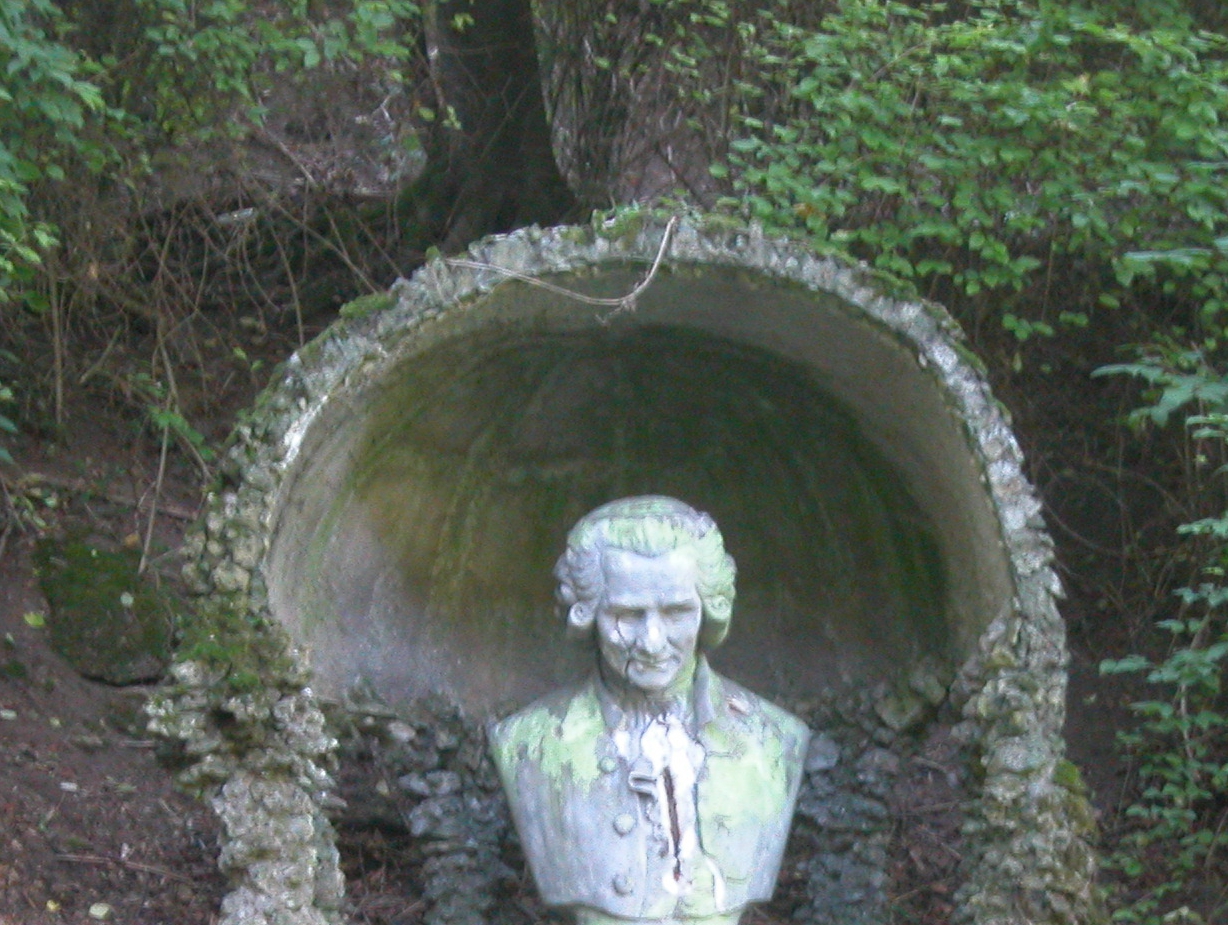
The following quotations are from Rousseau’s famous book, Emile. In this book he illustrates his approach to education, using an imaginary example of an educator who raises and teaches a boy called Emile. The goal of the educator is to nourish the child’s natural tendencies and help them grow, while protecting them from negative social influences. The educator is, therefore, like a gardener who cares for a small tree, protecting it from negative external influences until it grows to be strong enough. In Rousseau’s text, Emile grows up to become a man who behaves in a simple and direct way, a man who is self-sufficient and full of life, without pretense and falsity and excessive ambitions. This is a man whose behavior, thoughts and feelings come from his natural self.
God makes all things good; man interferes with them and they become evil. He forces one soil to produce the products of another soil, one tree to bear the fruit of another tree. He confuses and mixes time, place, and natural conditions… He destroys and spoils all things. He loves everything that is deformed and monstrous. He is not satisfied with anything as nature made it, not even with man himself...
Yet, things would be worse without education... Prejudice, authority, necessity, bad examples, all the social conditions into which we are thrown, would suppress nature in him and put nothing instead. Nature would be like a small tree in the middle of the highway, bent this way and that way, and soon crushed by those who pass by.
I ask you, you can remove this young tree from the highway and protect it from the crushing force of social conventions. Take care of it and water it, or else it would die. One day its fruit will reward your care.
(…)
To be something, to be himself, and always at one with himself, a person must act in the same way he speaks, he must know which road he has to take, and he must follow this road with energy and persistence.
(…)
This is nature's law; why contradict it? Don’t you see that in your efforts to improve upon its work you are destroying and wasting it?
(…)
Emile cares too little about the opinions of other people to value their prejudices. And he doesn’t care whether people respect him or not until they know him. His attitude is neither shy nor arrogant, but natural and sincere. He knows nothing about constraint or concealment, and he is just the same in a group of people as when he is alone… He cannot bear to see anyone suffer. He will not give up his place to another person from mere external politeness, but he will willingly give it out of kindness… He doesn’t flatter or agree. He says his opinion without arguing with others, because he loves liberty above all things…
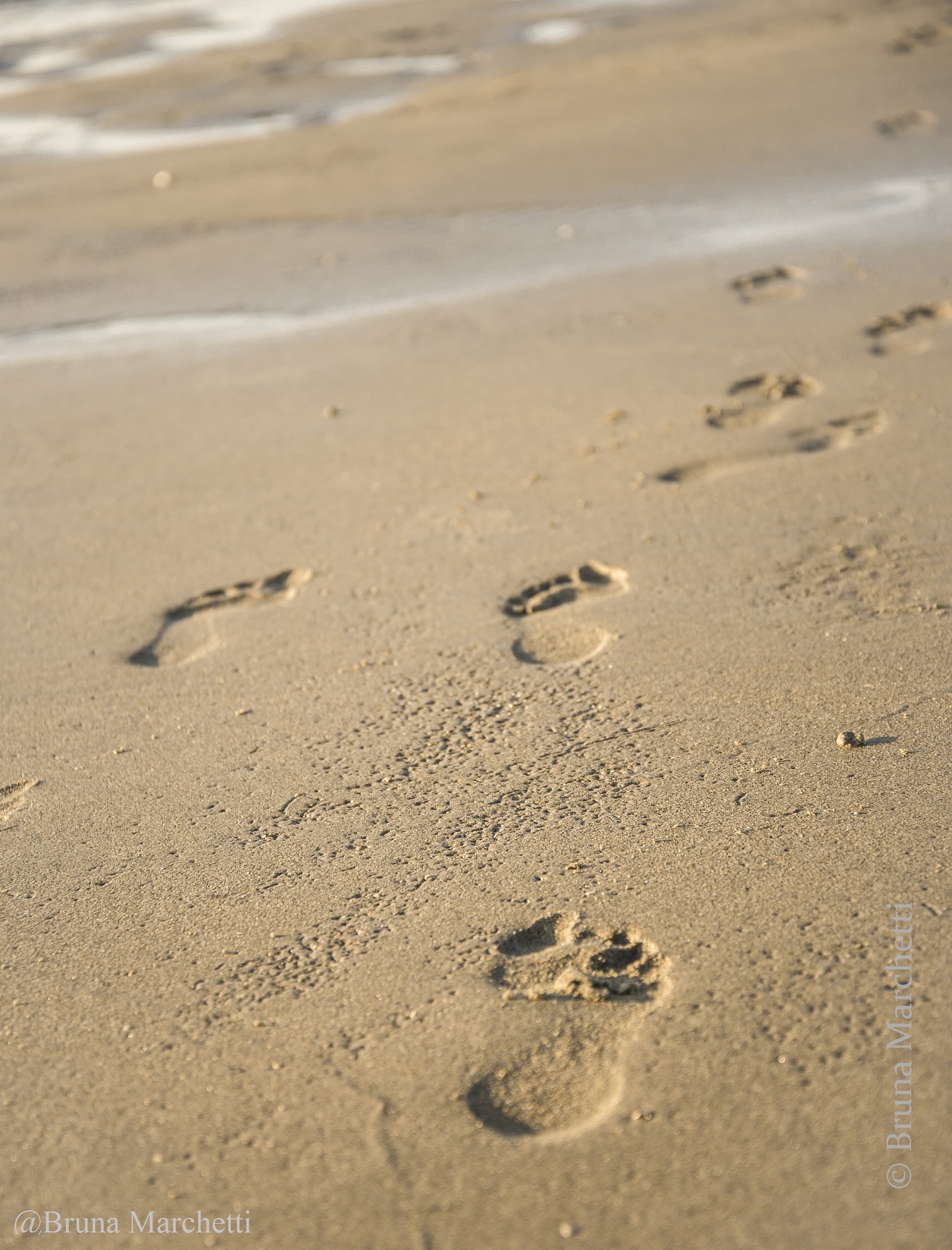
He says little, because he is not anxious to attract attention. For the same reason he only says what is to the point… His heart is tender and sensitive, but he doesn’t care about popular opinion, although he loves to give pleasure to others …For the same reasons he will never be careless about his manners or his clothes...
He knows how he should seek his own happiness in life, and how he can contribute to the happiness of others. His sphere of knowledge is restricted to what is profitable. His path is narrow and clearly defined… Emile is a man of common sense and he has no desire to be anything more.
|
|
|
July Week 1 quotation
HENRI BERGSON
|
|
Henri Bergson, Time and Free Will
The true self as the holistic "symphony" within us
Henri Bergson (1859-1941) was an influential French philosopher, and a Nobel Prize winner in literature. In his philosophical writings, written in a poetic style, he emphasized the importance of intuition.
Bergson tells us that in everyday life we usually live on the surface of our being. We are normally aware only of our rigid, fixed ideas and emotions, which can be easily described and analyzed. But our inner life is much richer than it seems. Underneath this familiar surface, our inner life is a constant flow of infinite qualities and meanings, like a flowing symphony. This is our real being - a creative, free flow that includes our entire being.
In the following passage, Bergson describes those special moments in which the true self - the "symphony" with us - comes up to the surface.
(Adopted from the translation by F.L. Pogson, London: Allen & Unwin, 1959, p. 169-170)
When our trustworthy friends advise us to take some important step, the attitudes which they express stay on the surface of our ego, and there they become solidified. Little by little they will form a thick crust which will cover up our own attitudes. We will believe that we are acting freely, but later on, when we look back, we will realize how much we were mistaken.
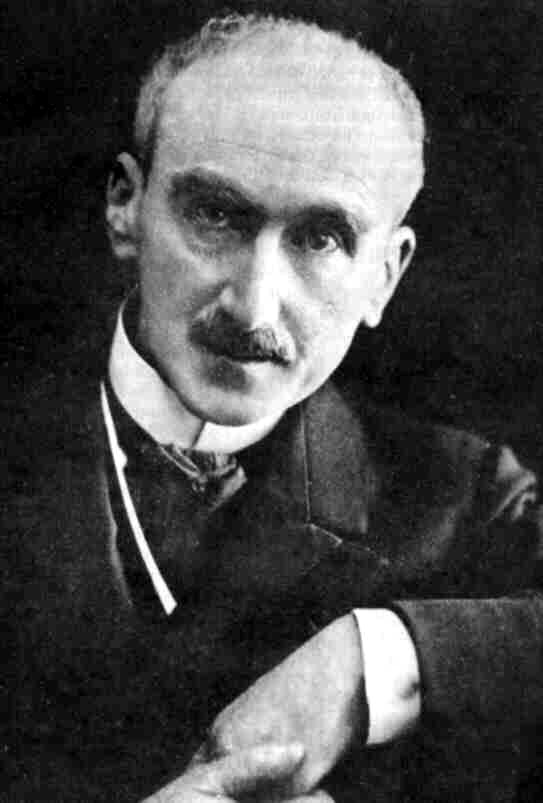 And then, just before we perform the act, something may revolt against it. It is the deep self rushing up to the surface. It is the outer crust bursting, suddenly surrendering to an irresistible push. In the depths of the self, below these very reasonable thoughts about very reasonable pieces of advice, something else was going on… And then, just before we perform the act, something may revolt against it. It is the deep self rushing up to the surface. It is the outer crust bursting, suddenly surrendering to an irresistible push. In the depths of the self, below these very reasonable thoughts about very reasonable pieces of advice, something else was going on…
We wish to know the reason why we have decided, and we find that we have decided without any reason, and perhaps against every reason. But sometimes this is the best reason. Because our action does not express some superficial idea, almost external to ourselves, separate and easy to explain. It agrees with the whole of our intimate feelings, thoughts and aspirations, it agrees with our particular conception of life which is the equivalent of all our past experience—in other words, with our personal idea of happiness and of honor.
|
Here is one way to contemplate on this quotation
Sit quietly and read the text very slowly. Ask yourself: What does the text tell me? Listen to the words and let them speak in you. Notice phrases that attract your attention or touch you. When you finish reading the text two or three times, write down the phrases that touched you, and then summarize them in one sentence. You can now return to your daily activity, but keep this sentence in your mind for the rest of the day.
|
|
IS THE BIRD INAUTHENTIC FOR WANTING TO HAVE ARTIFICIAL FEATHERS, OR IS IT AUTHENTIC BECAUSE IT WANTS TO HAVE LARGE FEATHERS AND FLY AWAY FREELY?
{youtube}CJIUNNssSVg{/youtube}
|
|
|



